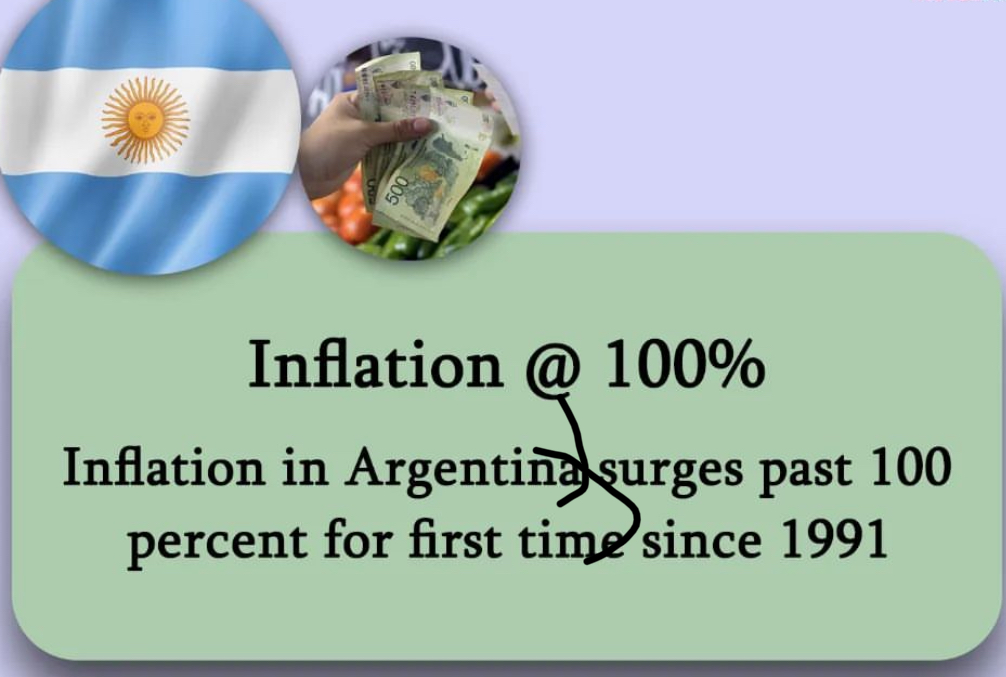Argentina is currently embroiled in a significant economic debate, primarily centered around the government’s recent measures to tackle the country’s spiraling inflation by easing the importation process for essential food items. This move, aimed at alleviating the skyrocketing cost of living for Argentinians, has met with considerable resistance from local manufacturers and industry groups. The controversy illuminates the complexities of managing inflation in an economy with deeply entrenched interests and the challenges of implementing policies that balance immediate consumer needs with long-term industrial sustainability.
In February, Argentina reported an alarming monthly inflation rate of 13.2%, culminating in an annual increase of 276.2%, according to data from the National Institute of Statistics and Censuses (INDEC). A more detailed look at the inflation breakdown reveals that food prices surged by 11.9% in the same month, marking a staggering 303% rise over the past year. This scenario paints a bleak picture of the financial strain faced by Argentinian consumers, particularly concerning basic necessities.
Luis Caputo, the Economy Minister, pointed a finger at food companies, accusing them of unjustifiably inflating prices in anticipation of an economic downturn, thereby exacerbating the inflationary pressures. Despite a reported decrease in inflation since December, Caputo criticized these companies for not reducing their prices correspondingly. Instead, they resorted to promotional strategies, such as two-for-one offers and special discounts at supermarkets, which, according to the minister, did not genuinely make food more affordable but merely helped these businesses offload their stock.
In response to this situation, the government has decided to increase competition within the domestic market by facilitating the importation of basic food items. This strategy is outlined in the Central Bank’s Communication 7980, which details the new regulations and the list of foods eligible for easier importation. The list is extensive, covering meat products, dairy, canned fish, fresh vegetables, breakfast cereals, pasta, biscuits, tea, coffee, and beer, among others.
Under the new regulations, food importers are granted several advantages, including access to foreign currency at the official rate in a single payment from the Central Bank within a maximum of 30 days. This is a significant departure from the terms available to other Argentine importers, who are typically required to secure foreign currency in four installments and can wait up to 120 days after submitting their request. Furthermore, the imported items are exempt from additional value-added tax and other duties, making them potentially more affordable for consumers.
However, this policy has not been well-received by various segments of the local industry. The Federación Agraria, a rural association, has voiced strong opposition, arguing that the government’s approach targets the symptoms of inflation rather than its root causes. The association contends that the measure fails to address the price discrepancies between what producers are paid and the prices consumers face in stores. They argue that this policy adversely affects small producers by removing their incentives to produce, given the broader economic challenges of exchange rate discrepancies, international competitiveness issues, high inflation in supplies, fuel, and freight, which collectively deteriorate the conditions for local production.
The Union Industrial Argentina (UIA), the country’s largest industrial chamber, has criticized the measure for creating an uneven playing field concerning access to foreign currency for imports and supplies, noting that small and medium-sized enterprises (SMEs) stand to gain little from these changes.
The largest food manufacturers’ chamber, the Coordinadora de las Industrias de Productos Alimenticios (COPAL), has engaged in discussions with Pablo Lavigne, the Commerce Secretary, and other officials from the Economy Ministry regarding the policy changes. However, COPAL has withheld public comment until after a planned board meeting, leaving the industry and public in suspense regarding its stance. COPAL, representing 34 chambers and 2,200 of Argentina’s leading food and beverage companies, has, until this juncture, supported the new administration’s policies, including tax relief for the private sector and labor reforms, which were initiated after the administration took office in December.
This controversy underscores the tension between immediate measures to curb inflation and the long-term viability of local industries in Argentina. As the government navigates these complex economic waters, the outcome of its policy interventions will be closely watched by both domestic and international observers. The challenge lies in finding a balance that supports economic growth, protects local industries, and, most importantly, offers relief to consumers burdened by the high cost of living.

